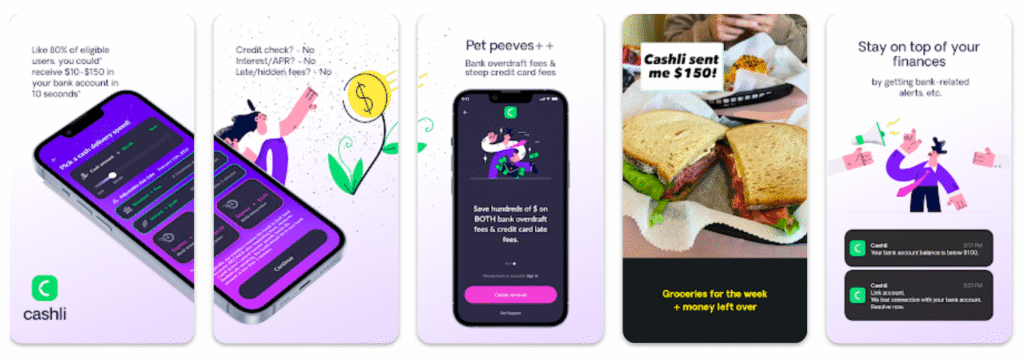What You Will Get At Glance
Introduction – Two Ways to Pay Later, One Big Decision to Make
In today’s shopping landscape, two popular options let you delay payments: Buy Now, Pay Later (BNPL) services and store credit cards. Both offer instant approval, promotional deals, and the flexibility to spread out purchases, making the BNPL vs store credit cards debate more relevant than ever. However, the way they work and their long-term impact on your finances. It differs significantly.
BNPL is fast, often interest-free, and accessible to those with limited credit. This is why store credit cards offer rewards. However, they come with higher risks and interest rates. This guide compares both options. It will help you decide which best suits your financial habits.
Also Read: BNPL for Rent Payments: Is It a Good Idea?
How Each Option Works
What Is Buy Now, Pay Later (BNPL)?
Buy Now, Pay Later (BNPL) lets you break purchases into smaller payments. These are usually four equal installments over a few weeks. BNPL is offered through apps like Klarna, Affirm, Afterpay, and PayPal Pay in 4. If you pay on time, the payments are usually interest-free, making them great for short-term buying.
What Is a Store Credit Card?
A retailer issues a store credit card, which is typically accepted at that store or its partners. The card comes with perks like discounts, rewards, or special financing. However, these cards often have high interest rates, so carrying a balance can get costly. Using the card responsibly can help build credit.
Approval and Eligibility
BNPL is easier to get since it usually doesn’t require a hard credit check. This makes it accessible even if your credit isn’t perfect. Store credit cards require a credit check. This is so they can be harder to get.
Comparing BNPL and Store Credit Cards Across Key Categories
Ease of Use and Accessibility
BNPL services are designed for speed and convenience. They’re widely available at online and in-store checkouts and come with fast approvals, even for users with no or limited credit history. On the other hand, store credit cards require a formal application and credit check, which means approval isn’t guaranteed if your credit is weak.
Interest and Fees
BNPL plans are often interest-free if you pay on time. But they may charge late fees for missed payments. In contrast, store credit cards typically carry high APRs. It is often between 20% and 30%. This can lead to costly interest charges if you don’t pay your balance in full each month.
Credit Score Impact
The impact of BNPL on your credit score can depend on many factors. Some providers report to credit bureaus, while others don’t, though this is shifting as reporting standards evolve in 2025. Store credit cards always report activity. This means your usage, payments, and balances can either help or hurt your credit score.
Spending Flexibility
BNPL is usually tied to individual transactions. It only works with participating merchants. Store credit cards offer revolving credit lines. It can be used repeatedly at the issuing store or its partner brands. This gives you more long-term spending flexibility.
Rewards and Perks
BNPL services rarely offer rewards, which can also be cash back or loyalty perks. Store credit cards often provide exclusive discounts, such as special financing, points, or early access to sales, which makes them more appealing to frequent shoppers of a particular brand.
Risk of Overspending
BNPL can make it easy to stack multiple payment plans without realizing how much you owe, increasing the risk of financial strain. Store credit cards, with their revolving nature, can also tempt users to carry high balances over time, especially when relying on rewards or discounts to justify spending.
Also Read: Do BNPL Installments Count as Debt?
When BNPL Might Be the Better Choice
One-Time Purchases You Can Repay Quickly
BNPL is an excellent option for smaller or medium-sized purchases. You can comfortably pay off within a few weeks. If you know the money comes from an upcoming paycheck, using BNPL lets you split the cost. This is without taking on long-term debt or interest. This is assuming you pay on time.
You Don’t Want to Affect Your Credit Score
Most BNPL services don’t require a hard credit check. It makes them ideal if you’re trying to avoid a dip in your credit score. They also offer a low-risk way to manage purchases more privately when used responsibly. This is without impacting your credit history.
You Need Simplicity Without Long-Term Obligations
BNPL doesn’t involve revolving balances, annual fees, or ongoing debt. This is entirely unlike credit cards. Each purchase is a short-term installment plan with a precise end date. It makes it easier to budget. This will avoid the temptation to spend more than you planned.
When a Store Credit Card Might Be the Better Choice
You Shop Frequently at the Same Store
A store credit card can offer value if you regularly shop at a particular retailer. The perks range from exclusive discounts and coupons to loyalty rewards and special sales access. This will save you money over time.
You Want to Build or Rebuild Credit
Store credit cards are often easier. This way you can qualify for than traditional credit cards. It makes them a good option if you’re trying to establish or rebuild your credit. Your positive activity is reported to credit bureaus if you make on-time payments. It helps improve your credit score.
You Can Pay Off Balances Each Month
It’s best to pay your balance in full each month to get the most out of a store card. Treating the card like a debit payment helps you avoid the high interest rates and enjoy the rewards and benefits. This is without the cost of carrying debt.
Hidden Pitfalls of Both Options
BNPL
Missing the total of your active plans can mess up your budget. Late payments may result in fees and credit damage. Some BNPL services charge interest on longer-term plans.
Store Credit Cards
High interest rates can add up if you don’t pay in full. Deferred interest means late payments can trigger backdated charges. Low credit limits can hurt your credit utilization if you max out the card.
How to Decide Between the Two
You must ask yourself questions to make better decisions. Here are some essential questions you might ask:
- Can I repay the amount quickly?
- Am I looking to build credit?
- Do I shop at this store frequently enough to benefit from rewards?
- Do I already have other active BNPL or credit accounts?
- What’s my goal: convenience, rewards, or credit building?
What About Using Both?
Using a store credit card for rewards and BNPL for payment flexibility can be a smart combo—if you stay organized. However, the risks increase if you miss due dates or carry balances on both. Tools like Beem’s AI Wallet can help you track spending and avoid surprises.
How Beem Helps You Stay in Control
Beem’s AI Wallet brings all your BNPL plans and credit card balances together in one easy-to-manage place. Its Budget Planner feature alerts you to overlapping payments, upcoming due dates, and potential financial risks before they become problematic.
Beem’s Everdraft™ offers a no-interest, no-credit-check alternative to BNPL and store cards. With Beem, you can enjoy short-term spending flexibility. This is while keeping your credit health on track.
Final Thoughts – Make the Smarter Choice for Your Wallet and Credit
BNPL is simple and easy to use. However, it usually lacks rewards, which can lead to overspending. Store credit cards help build credit and offer perks. However, they carry higher risks if they are not managed carefully.
The right choice depends on your personal goals, spending habits, and financial discipline. Tools like Beem can help you stay organized no matter which option you pick. You can also manage payments smartly and avoid falling into debt traps this way.
FAQs About BNPL vs Store Credit Cards
Does BNPL help build credit like store credit cards?
Not always. Some BNPL providers report to credit bureaus, but many don’t. Store cards usually report your activity, which can help build credit.
Is it easier to get approved for BNPL or a store card?
BNPL is generally easier to get approved for because it often doesn’t require a hard credit check, whereas store cards usually do.
Can I use BNPL and a store credit card to make the same purchase?
Typically, no. BNPL and store cards are separate payment methods that cannot be combined in one transaction.
What’s the risk of using BNPL too often?
Using BNPL frequently can lead to multiple overlapping payments. It makes budgeting difficult and increases the chance of missed payments.
What happens if I miss a store credit card payment vs. a BNPL installment?
Missing a store card payment often results in high interest charges and a negative credit report. Missing a BNPL payment may trigger late fees. But it depends on the provider. It can affect your credit.






